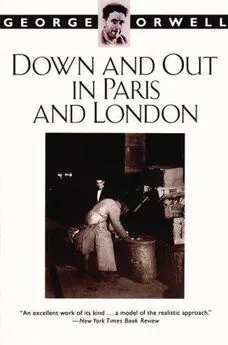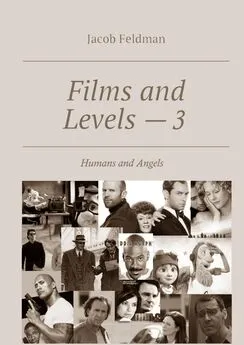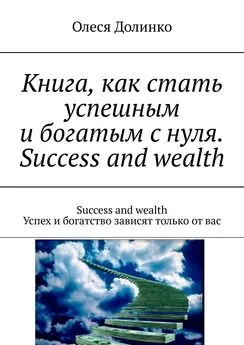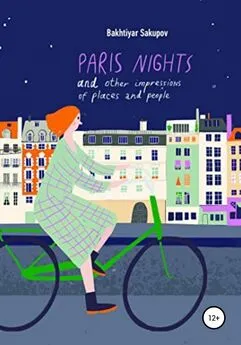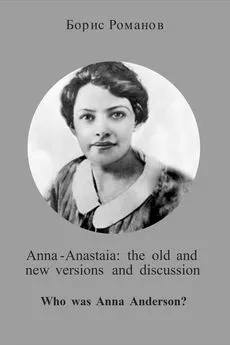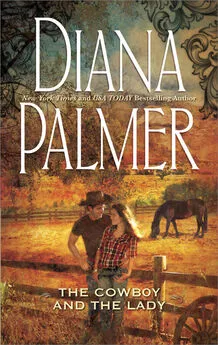George Orwell - Down and Out in Paris and London
- Название:Down and Out in Paris and London
- Автор:
- Жанр:
- Издательство:неизвестно
- Год:неизвестен
- ISBN:нет данных
- Рейтинг:
- Избранное:Добавить в избранное
-
Отзывы:
-
Ваша оценка:
George Orwell - Down and Out in Paris and London краткое содержание
Down and Out in Paris and London - читать онлайн бесплатно полную версию (весь текст целиком)
Интервал:
Закладка:
seemed queer and foreign after Paris. It was a little stuffy
room with the high-backed pews that were fashionable in
the 'forties, the day's menu written on a mirror with a
piece of soap, and a girl of fourteen handling the dishes.
Navvies were eating out of newspaper parcels, and
drinking tea in vast saucerless mugs like china tumblers.
In a corner by himself a Jew, muzzle down in the plate,
was guiltily wolfing bacon.
"Could I have some tea and bread and butter?" I said to
the girl.
She stared. "No butter, only marg," she said, surprised.
And she repeated the order in the phrase that is to London
what the eternal
coup de rouge is to Paris: "Large tea and
two slices!"
On the wall beside my pew there was a notice saying
"Pocketing the sugar not allowed," and beneath it some
poetic customer had written:
He that takes away the sugar,
Shall be called a dirty---
but someone else had been at pains to scratch out the last
word. This was England. The tea-and-two-slices cost
threepence halfpenny, leaving me with eight and
twopence.
XXV
THE eight shillings lasted three days and four nights. After
my bad experience in the Waterloo Road'. I moved
eastward, and spent the next night in a lodginghouse in
Pennyfields. This was a typical lodging-house, like scores
of others in London. It had accommo-
1 It is a curious but well-known fact that bugs are much commoner in
south than north London. For some reason they have not yet crossed the
river in any great numbers
.
dation for between fifty and a hundred men, and was
managed by a "deputy"-a deputy for the owner, that is, for
these lodging-houses are profitable concerns and are
owned by rich men. We slept fifteen or twenty in a
dormitory; the beds were again cold and hard, but the
sheets were not more than a week from the wash, which
was an improvement. The charge was ninepence or a
shilling (in the shilling dormitory the beds were six feet
apart instead of four) and the terms were cash down by
seven in the evening or out you went.
Downstairs there was a kitchen common to all lodgers,
with free firing and a supply of cooking-pots, tea-basins,
and toasting-forks. There were two great, clinker fires,
which were kept burning day and night the year through.
The work of tending the fires, sweeping the kitchen and
making the beds was done by the lodgers in rotation. One
senior lodger, a fine Norman-looking stevedore named
Steve, was known as "head of the house," and was arbiter
of disputes and unpaid chuckerout.
I liked the kitchen. It was a low-ceiled cellar deep
underground, very hot and drowsy with coke fumes, and
lighted only by the fires, which cast black velvet shadows
in the corners. Ragged washing hung on strings from the
ceiling. Red-lit men, stevedores mostly, moved about the
fires with cooking-pots; some of them were quite naked,
for they had been laundering and were waiting for their
clothes to dry. At night there were games of nap and
draughts, and songs"I'm a chap what's done wrong by my
parents," was a favourite, and so was another popular song
about a shipwreck. Sometimes late at night men would
come in with a pail of winkles they had bought cheap, and
share them out. There was a general sharing of food, and it
was taken for granted to feed men who were out
of work. A little pale, wizened creature, obviously
dying, referred to as "pore Brown, bin under the doctor
and cut open three times," was regularly fed by the
others.
Two or three of the lodgers were old-age pensioners.
Till meeting them I had never realised that there are
people in England who live on nothing but the oldage
pension of ten shillings a week. None of these old men
had any other resource whatever. One of them was
talkative, and I asked him how he managed to exist. He
said:
"Well, there's ninepence a night for yer kip-that's five
an' threepence a week. Then there's threepence on
Saturday for a shave-that's five an' six. Then say you 'as
a 'aircut once a month for sixpence-that's another
three'apence a week. So you 'as about four an' fourpence
for food an' bacca."
He could imagine no other expenses. His food was
bread and margarine and tea-towards the end of the week
dry bread and tea without milk-and perhaps he got his
clothes from charity. He seemed contented, valuing his
bed and fire more than food. But, with an income of ten
shillings a week, to spend money on a shave-it is awe-
inspiring.
All day I loafed in the streets, east as far as Wapping,
west as far as Whitechapel. It was queer after Paris;
everything was so much cleaner and quieter and drearier.
One missed the scream of the trams, and the noisy,
festering life of the back streets, and the armed men
clattering through the squares. The crowds were better
dressed and the faces comelier and milder and more
alike, without that fierce individuality and malice of the
French. There was less drunkenness, and less dirt, and
less quarrelling, and more idling. Knots of men stood at
all the corners, slightly underfed, but kept
going by the tea-and-two-slices which the Londoner
swallows every two hours. One seemed to breathe a less
feverish air than in Paris. It was the land of the tea urn
and the Labour Exchange, as Paris is the land of the bistro
and the sweatshop.
It was interesting to watch the crowds. The East
London women are pretty (it is the mixture of blood,
perhaps), and Limehouse was sprinkled with Orientals -
Chinamen, Chittagonian lascars, Dravidians selling silk
scarves, even a few Sikhs, come goodness knows how.
Here and there were street meetings. In Whitechapel
somebody called The Singing Evangel undertook to save
you from hell for the charge of sixpence. In the East
India Dock Road the Salvation Army were holding a
service. They were singing "Anybody here like sneaking
Judas?" to the tune of "What's to be done with a drunken
sailor?" On Tower Hill two Mormons were trying to
address a meeting. Round their platform struggled a mob
of men, shouting and interrupting. Someone was
denouncing them for polygamists. A lame, bearded man,
evidently an atheist, had heard the word God and was
heckling angrily. There was a confused uproar of voices.
"My dear friends, if you would only let us finish what
we were saying-!-That's right, give 'em a say. Don't get
on the argue!-No, no, you answer me. Can you
show me
God? You show 'im me, then I'll believe in 'im.-Oh, shut
up, don't keep interrupting of 'em!Interrupt yourself!-
polygamists!-Well, there's a lot to be said for polygamy.
Take the women out of industry, anyway.-My dear
friends, if you would just
-No, no, don't you slip out
of it. 'Ave you seen God? 'Ave you
touched 'im? 'Ave you
shook '
ands with 'im?-Oh, don't get on the argue, for
Christ's sake don't get on the
argue !" etc. etc. I listened
for twenty minutes, anxious to learn something about
Mormonism, but the meeting never got beyond shouts. It
is the general fate of street meetings.
In Middlesex Street, among the crowds at the market, a
draggled, down-at-heel woman was hauling a brat of five
by the arm. She brandished a tin trumpet in its face. The
brat was squalling.
"Enjoy yourself!" yelled the mother. "What yer think I
brought yer out 'ere for an' bought y'a trumpet an' all?
D'ya want to go across my knee? You little bastard, you
shall
enjoy yerself!"
Some drops of spittle fell from the trumpet. The mother
and the child disappeared, both bawling. It was all very
queer after Paris.
The last night that I was in the Pennyfields lodginghouse
there was a quarrel between two of the lodgers, a vile
scene. One of the old-age pensioners, a man of about
seventy, naked to the waist (he had been laundering), was
violently abusing a short, thickset stevedore, who stood
with his back to the fire. I could see the old man's face in
the light of the fire, and he was almost crying with grief
and rage. Evidently something very serious had happened.
The old-age pensioner
: "You---!"
The stevedore
: "Shut yer mouth, you ole---, afore I
set about yer!"
The old-age pensioner
: "Jest you try it on, you--!
I'm thirty year older'n you, but it wouldn't take much to
make me give you one as'd knock you into a bucketful of
piss!"
The stevedore
: « Ah, an' then p'raps I wouldn't smash
you up after, you ole---!"
Thus for five minutes. The lodgers sat round, unhappy,
trying to disregard the quarrel. The stevedore looked
sullen, but the old man was growing more and
more furious. He kept making little rushes at the other,
sticking out his face and screaming from a few inches
distant like a cat on a wall, and spitting. He was trying to
nerve himself to strike a blow, and not quite suc
ceeding. Finally he burst out:
"A--, that's what you are, a---! Take that
in your dirty gob and suck it, you--! By--, I'll
smash you afore I've done with you. A---, that's
what you are, a son of a --- whore. Lick that, you---!
That's what I think of you, you---, you---, you---
you BLACK BASTARD!"
Whereat he suddenly collapsed on a bench, took his
face in his hands, and began crying. The other man seeing
that public feeling was against him, went out.
Afterwards I heard Steve explaining the cause of the
quarrel. It appeared that it was all about a shilling's worth
of food. In some way the old man had lost his store of
bread and margarine, and so would have nothing to eat
for the next three days, except what the others gave him
in charity. The stevedore, who was in work and well fed,
had taunted him; hence the quarrel.
When my money was down to one and fourpence I went
for a night to a lodging house in Bow, where the charge
was only eightpence. One went down an area and through
an alley-way into a deep, stifling cellar, ten feet square.
Ten men, navvies mostly, were sitting in the fierce glare
of the fire. It was midnight, but the deputy's son, a pale,
sticky child of five, was there playing on the navvies'
knees. An old Irishman was whistling to a blind bullfinch
in a tiny cage. There were other songbirds there-tiny,
faded things, that had lived all their lives underground.
The lodgers habitually made water in the fire, to save
going across a yard to the lavatory. As I sat at the table I
felt something stir near my feet, and, looking down, saw a
wave of black things moving slowly across the floor; they
were blackbeetles.
There were six beds in the dormitory, and the sheets,
marked in huge letters "Stolen from No.--- Road," smelt
loathsome. In the next bed to me lay a very old man, a
pavement artist, with some extraordinary curvature of the
spine that made him stick right out of bed, with his back a
foot or two from my face. It was bare, and marked with
curious swirls of dirt, like a marble table-top. During the
Читать дальшеИнтервал:
Закладка:
